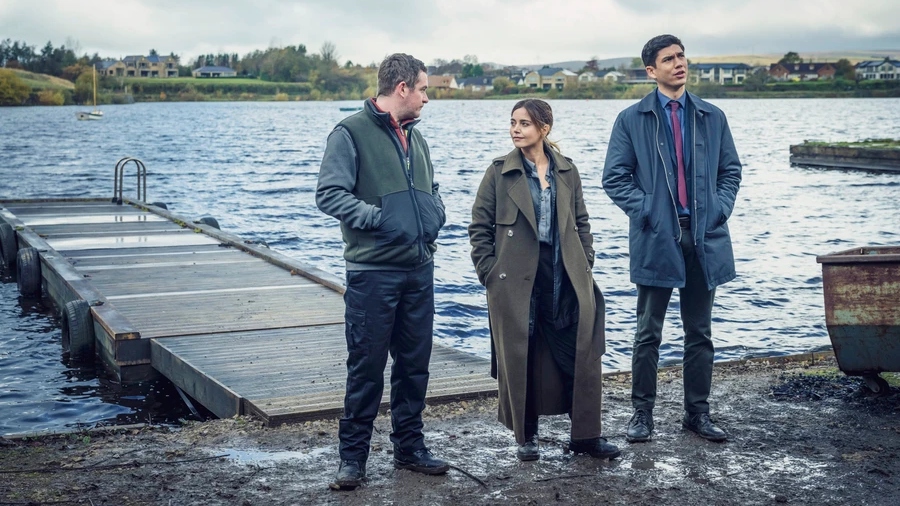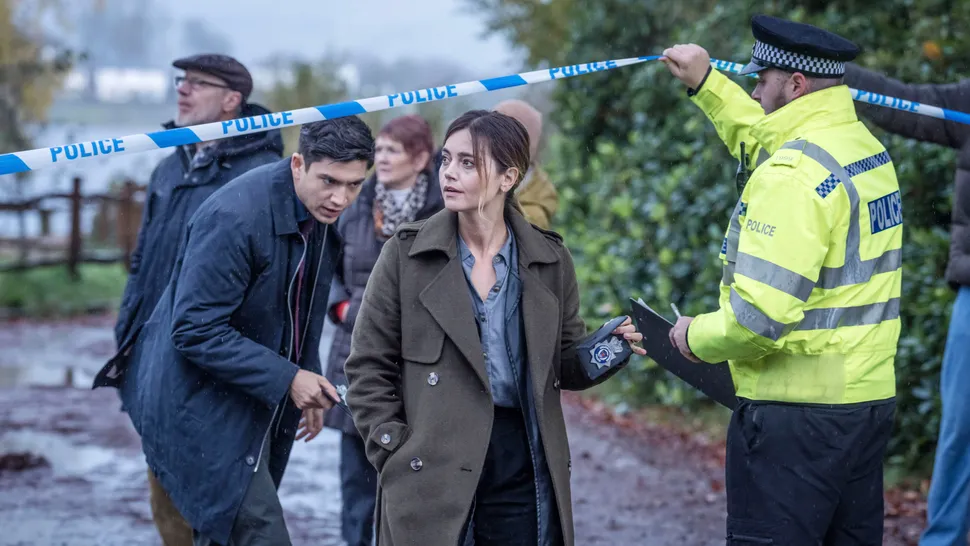The Jetty ending explained: Who was the killer in the BBC series?
As crime drama fans binge-watch The Jetty, some are confused by the ending of the show

The Jetty is the latest BBC crime drama to have fans hooked, with many racing to the end by binge-watching the series. But some have been left confused by the show's shock ending.
With its many twists and turns, it isn’t surprising that The Jetty is already being hailed as one of the best crime dramas of the year.
Airing over just four episodes, the tension rarely subsides as Detective Ember Manning (Jenna Coleman) investigates a fire with links to a local sex offender and a missing girl.
While fans have been curious about whether The Jetty is based on a true story and where it was filmed, another big question is at the front of their minds: who killed Amy Knightly?
The Jetty ending explained: Who was the killer?
In the final episode of The Jetty it is revealed that Ember killed Amy Knightly.
However, it was David 'Arj' Argent who burned down the boat house and murdered true crime podcaster, Riz Samuels.
The twist is particularly shocking given that the BBC series had previously teased that Ember’s late husband, Mack, was the killer.
Sign up for the woman&home newsletter
Sign up to our free daily email for the latest royal and entertainment news, interesting opinion, expert advice on styling and beauty trends, and no-nonsense guides to the health and wellness questions you want answered.
With the drama unfolding through a series of flashbacks, it is revealed that Mack and Amy had been sexually involved - despite her being underage.
At the time, the older man had also been dating a then-17-year-old Ember.
During a heated argument at the boat house, he breaks off his relationship with Amy and receives a nasty wound on his hand as a result.
Though these clues point towards him being the series’ killer, the shocking truth is revealed when Ember confronts Arj years later.

Recalling the night of her 17th birthday and when Amy went missing, it’s revealed that several attendees (including Ember) had been taking pills in the pub.
After Arj receives a text from Mack asking to pick him up, he and Ember go to pick him up from the boat house.
Through hazy flashbacks, Arj wrongly confesses to being the driver and accidentally killing Amy in a hit-and-run.
It is only then that Ember realises the horrific truth: she is the one responsible.
Driving while under the influence, the then-17-year-old accidentally hits Amy.
In a desperate bid to protect his then-underage girlfriend, Mack later conceives Arj that he was the driver that night.
Consumed with guilt, the pair bury the teen’s body under the boat house’s floors.
Unaware of what happened that night, Arj spends decades believing his responsibility.

When the boat house refurbishment threatens to uncover the body, he later digs up Amy’s body and sets fire to the boat house to cover his tracks.
As the truth is finally revealed, Arj claims that Amy’s death ‘ruined his life’ and confesses to killing Riz to protect himself.
He then attempts to strangle Ember, just as he did with Riz, before dousing himself in petrol and lighting himself on fire.
In the ensuing chaos, Ember narrowly escapes by diving off the jetty and into the freezing waters below.
As the series draws to a close, she blames Arj for Amy’s death while being questioned by DI Morgan.
Though Ember is unable to confess to her crime, The Jetty ends on a poignant note with her investigating other men who’ve been sleeping with underage girls - just like the ones who ruined her life.
Vowing to make the world a safe place, she is determined to put predatory men behind bars and finally scatters Mack’s Ashes.
-
 Head to Hobbs for holiday-ready linen and the most elegant summer dresses you’ll find on the high street
Head to Hobbs for holiday-ready linen and the most elegant summer dresses you’ll find on the high streetWondering where to shop for a chic summer wardrobe? Hobbs has you covered
By Caroline Parr
-
 Forget beach bags and sunnies, Jasmine Harman's ravishing red swimsuit was elevated by matchy-matchy lipstick
Forget beach bags and sunnies, Jasmine Harman's ravishing red swimsuit was elevated by matchy-matchy lipstickIf I want to make even the simplest outfit look a bit more polished, colour coordination becomes my style best friend.
By Emma Shacklock